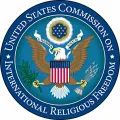The French government repudiates the motto 'Liberté, Égalité, Fraternité'.
"Approving that law would be a mistake for France," wrote Fabrizio d'Agostini, FOB's scientific advisor and founding member, regarding the bill to strengthen the fight against sectarian deviance that the French government approved despite the Senate's contrary opinion. "The history of France, but also of humanity, is 'chock-full' of similar laws, sometimes less refined, sometimes more brutal, mostly against religious minorities but not only and they have always been bloody stories of death, pain, suffering. They still are."























